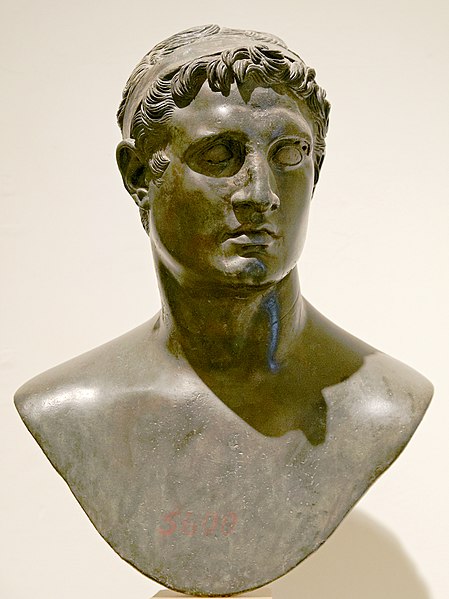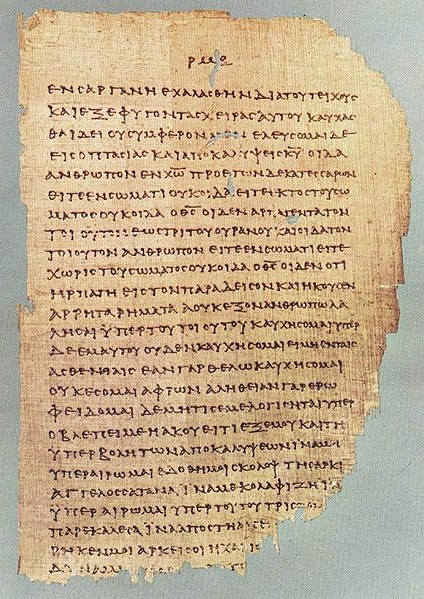The Ptolemaic Kingdom or Ptolemaic Empire was an Ancient Greek polity based in Egypt during the Hellenistic period. It was founded in 305 BC by the Macedonian general Ptolemy I Soter, a companion of Alexander the Great, and ruled by the Ptolemaic dynasty until the death of Cleopatra VII in 30 BC. Reigning for nearly three centuries, the Ptolemies were the longest and final dynasty of ancient Egypt, heralding a distinctly new era for religious and cultural syncretism between Greek and Egyptian culture.
Ptolemaic Kingdom
Ptolemy as Pharaoh of Egypt, British Museum, London
Hellenistic bust of Ptolemy I Soter, 3rd century BC, now in the Louvre
A bust depicting Pharaoh Ptolemy II Philadelphus 309–246 BC
Koine Greek, also known as Hellenistic Greek, common Attic, the Alexandrian dialect, Biblical Greek, Septuagint Greek or New Testament Greek, was the common supra-regional form of Greek spoken and written during the Hellenistic period, the Roman Empire and the early Byzantine Empire. It evolved from the spread of Greek following the conquests of Alexander the Great in the fourth century BC, and served as the lingua franca of much of the Mediterranean region and the Middle East during the following centuries. It was based mainly on Attic and related Ionic speech forms, with various admixtures brought about through dialect levelling with other varieties.
Greek script from the Rosetta Stone decree issued in the Ptolemaic Kingdom, 2nd century BC
Papyrus 46 is one of the oldest extant New Testament manuscripts in Greek, written on papyrus, with its 'most probable date' between 175 and 225.






